Statistical Data Analyst Cover Letter Examples

May 29, 2025
|
12 min read
Discover how to create a compelling statistical data analyst cover letter that will 'sum' up your strengths and 'plot' your path to success. Learn tips on showcasing skills and experience to stand out to employers.
Rated by 348 people
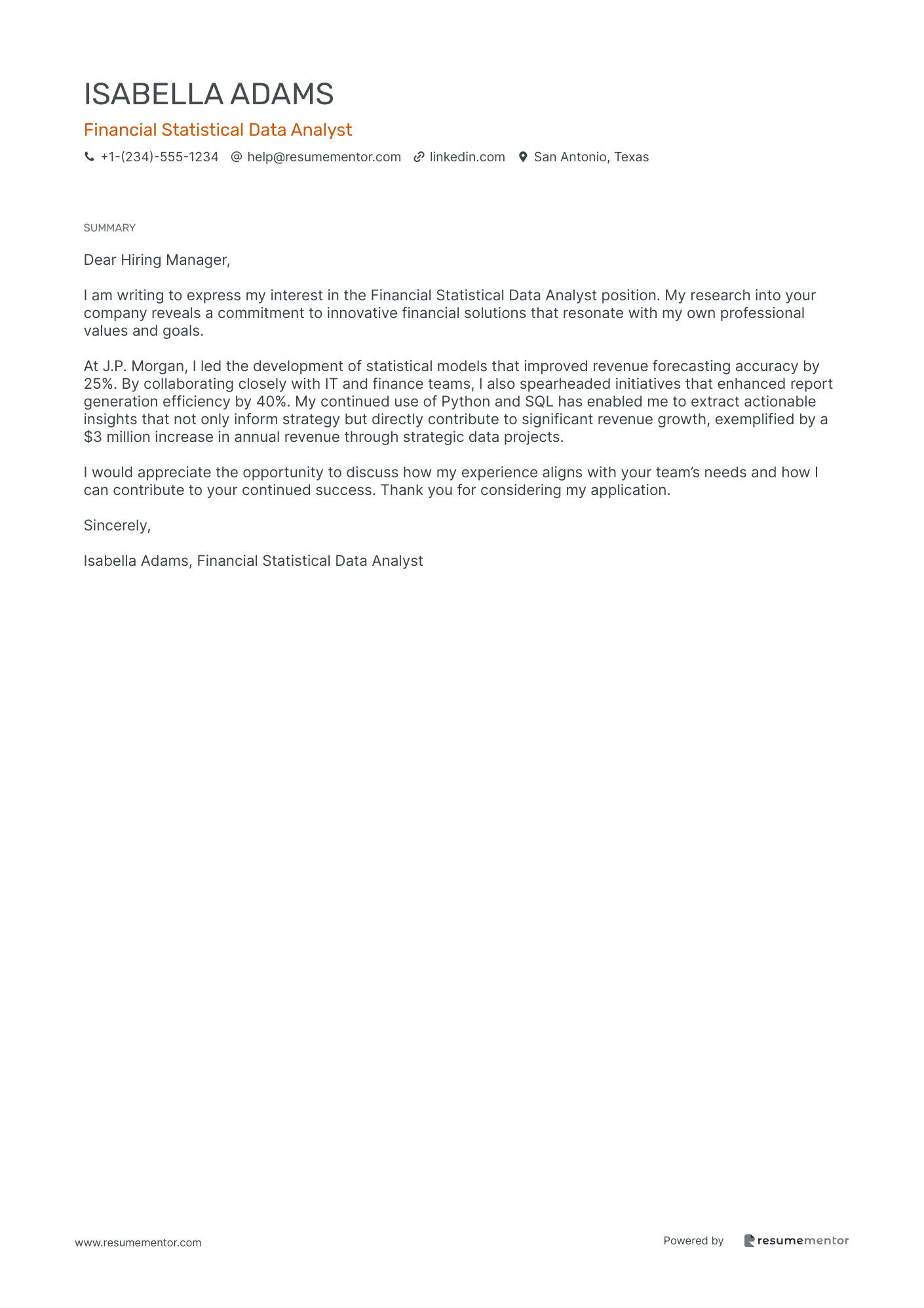
Financial Statistical Data Analyst
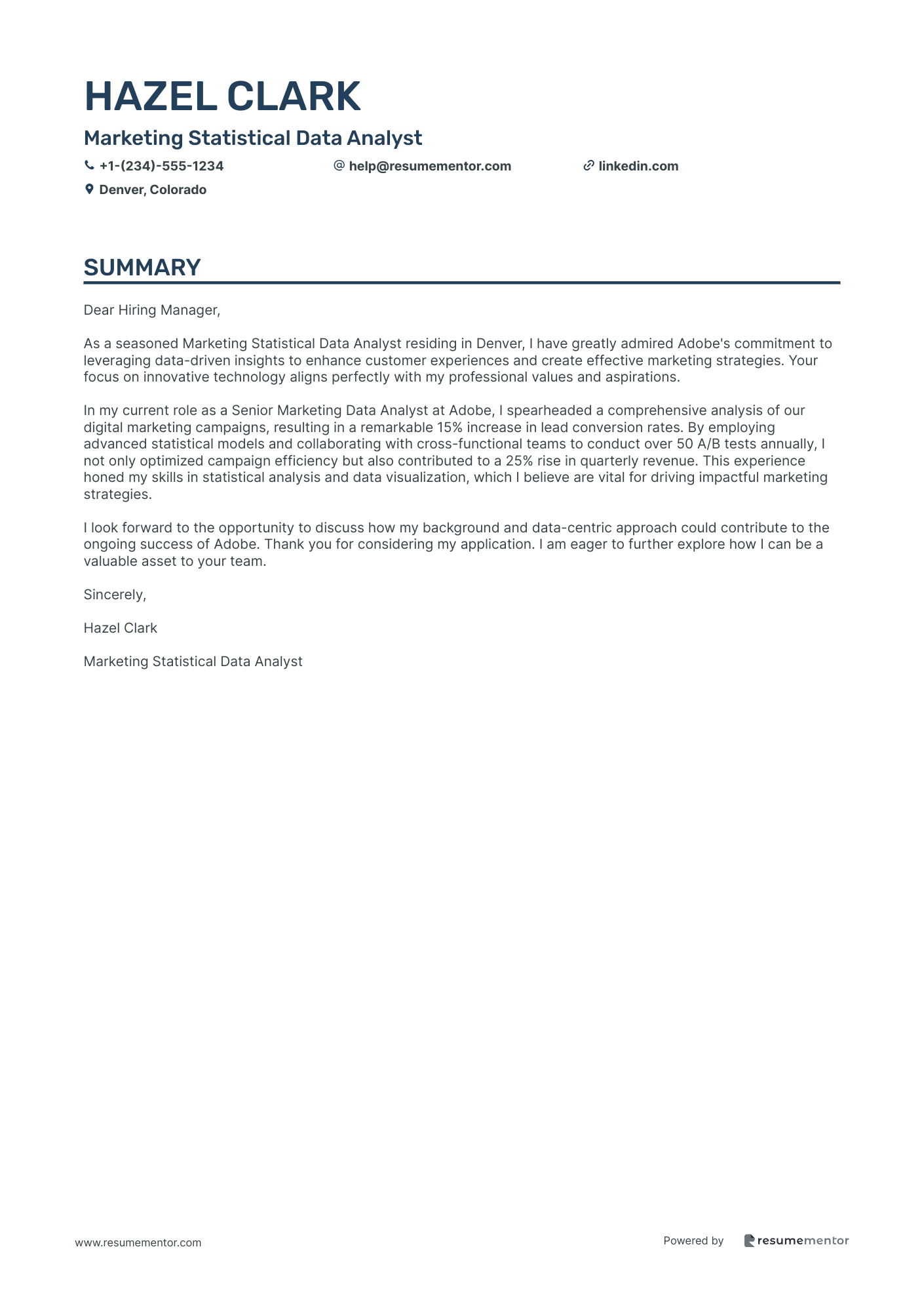
Marketing Statistical Data Analyst
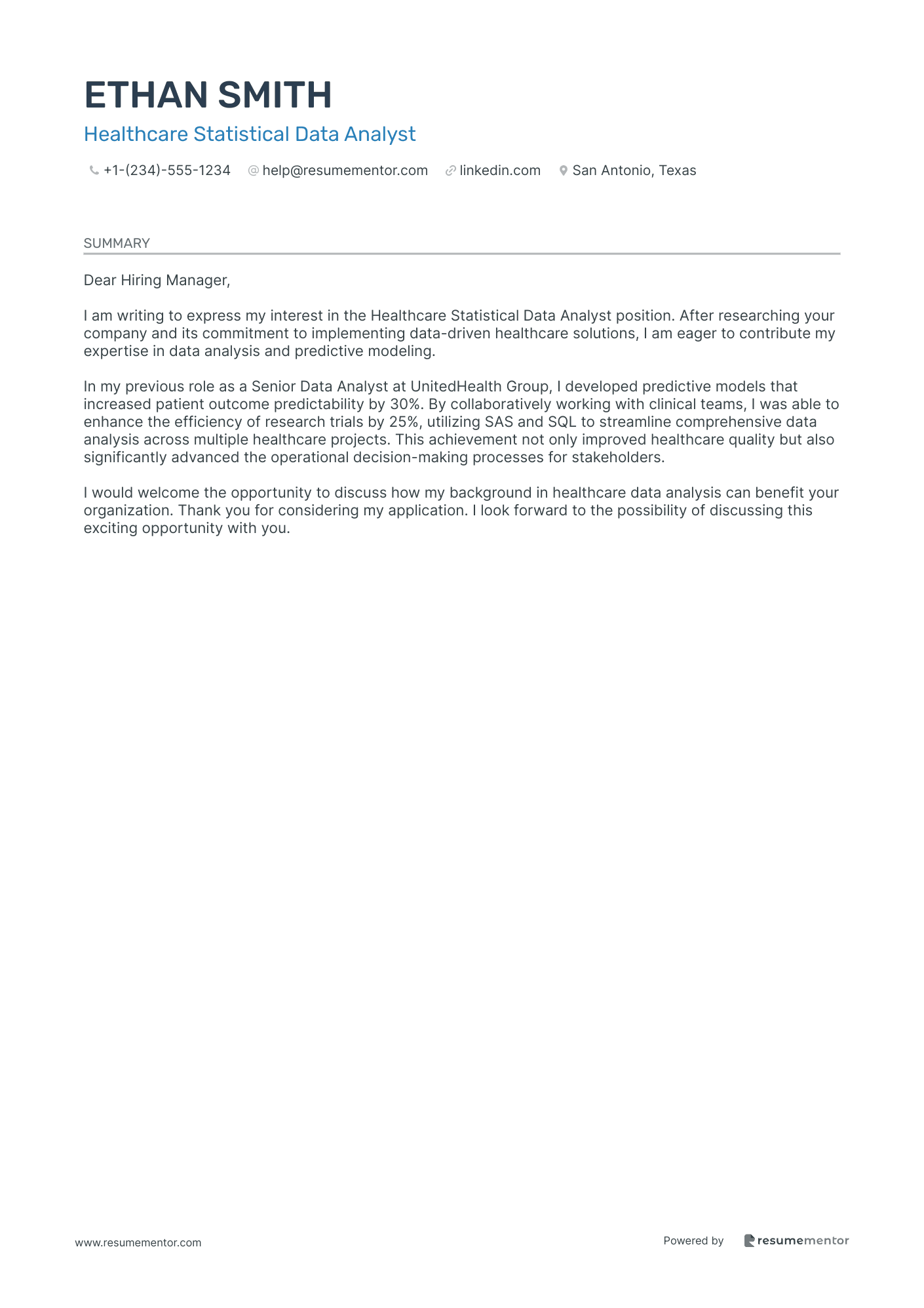
Healthcare Statistical Data Analyst
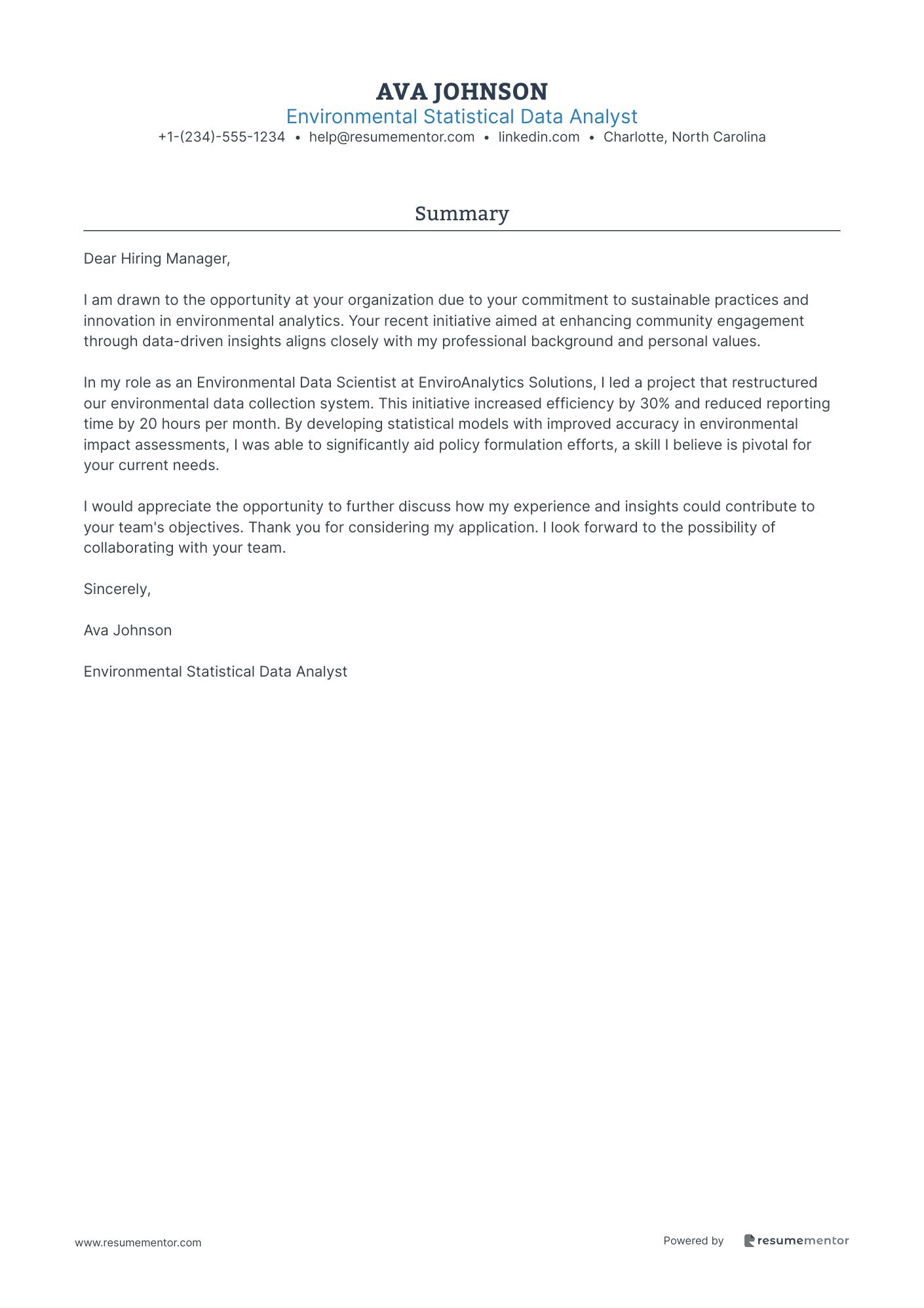
Environmental Statistical Data Analyst
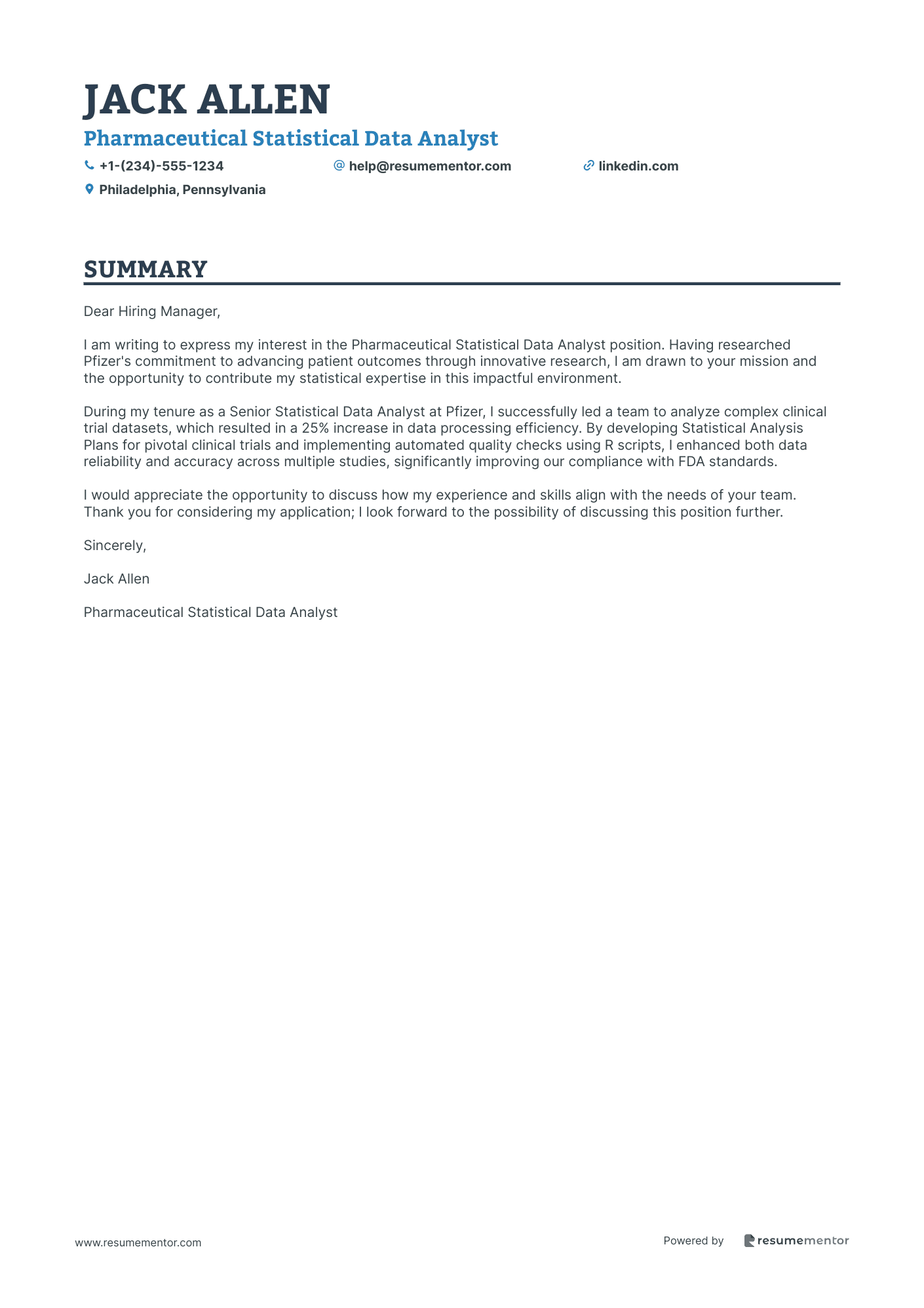
Pharmaceutical Statistical Data Analyst
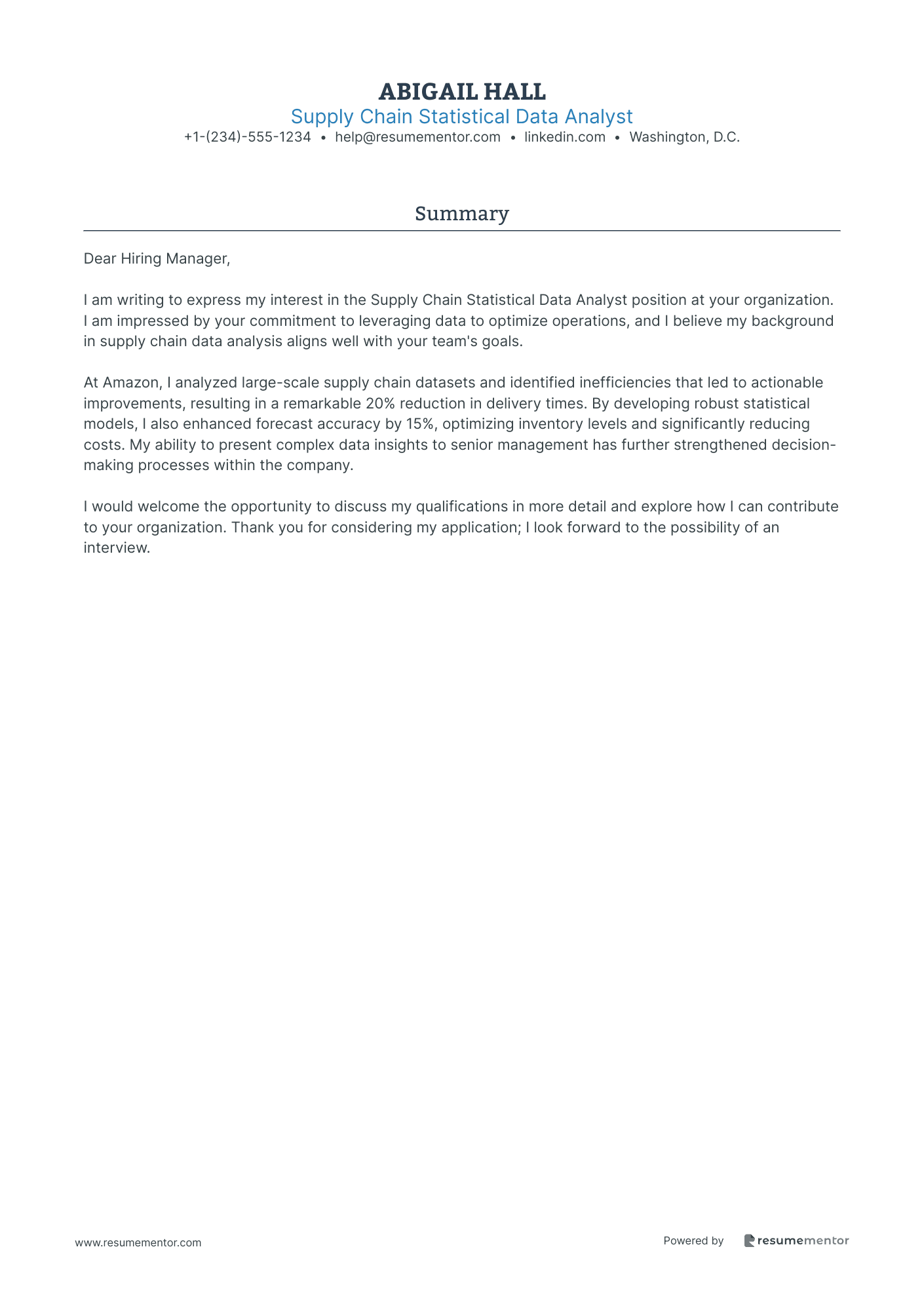
Supply Chain Statistical Data Analyst
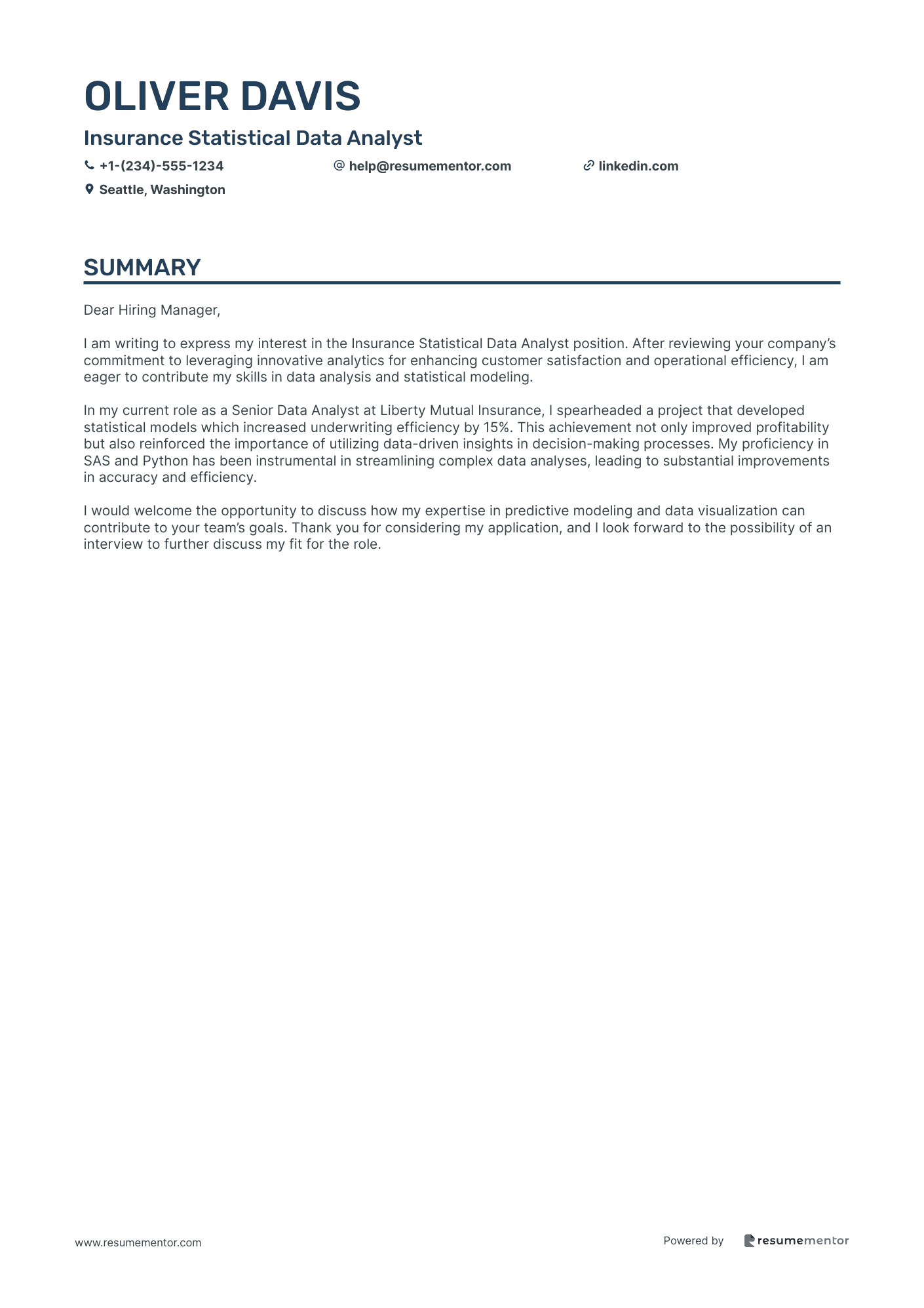
Insurance Statistical Data Analyst
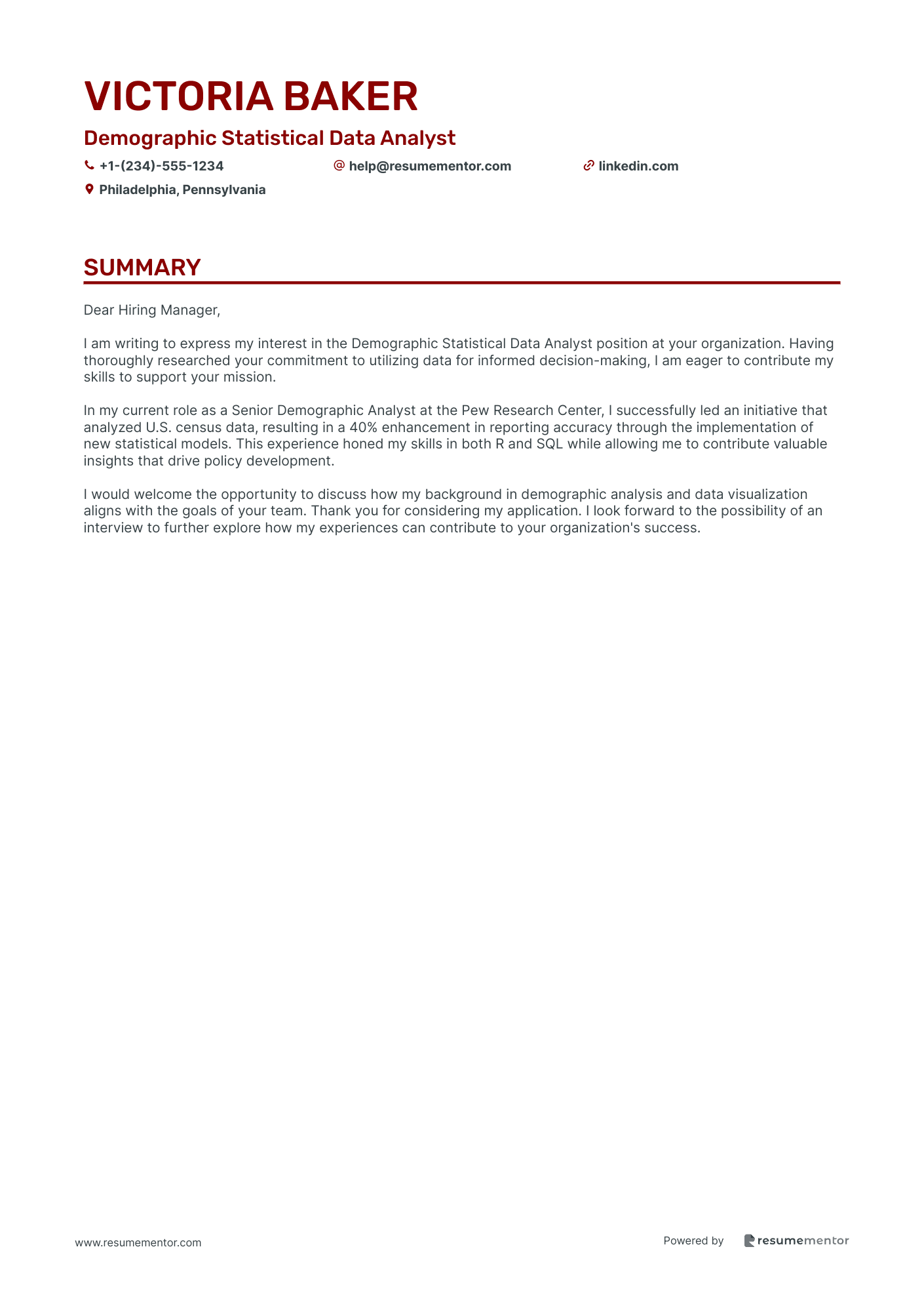
Demographic Statistical Data Analyst
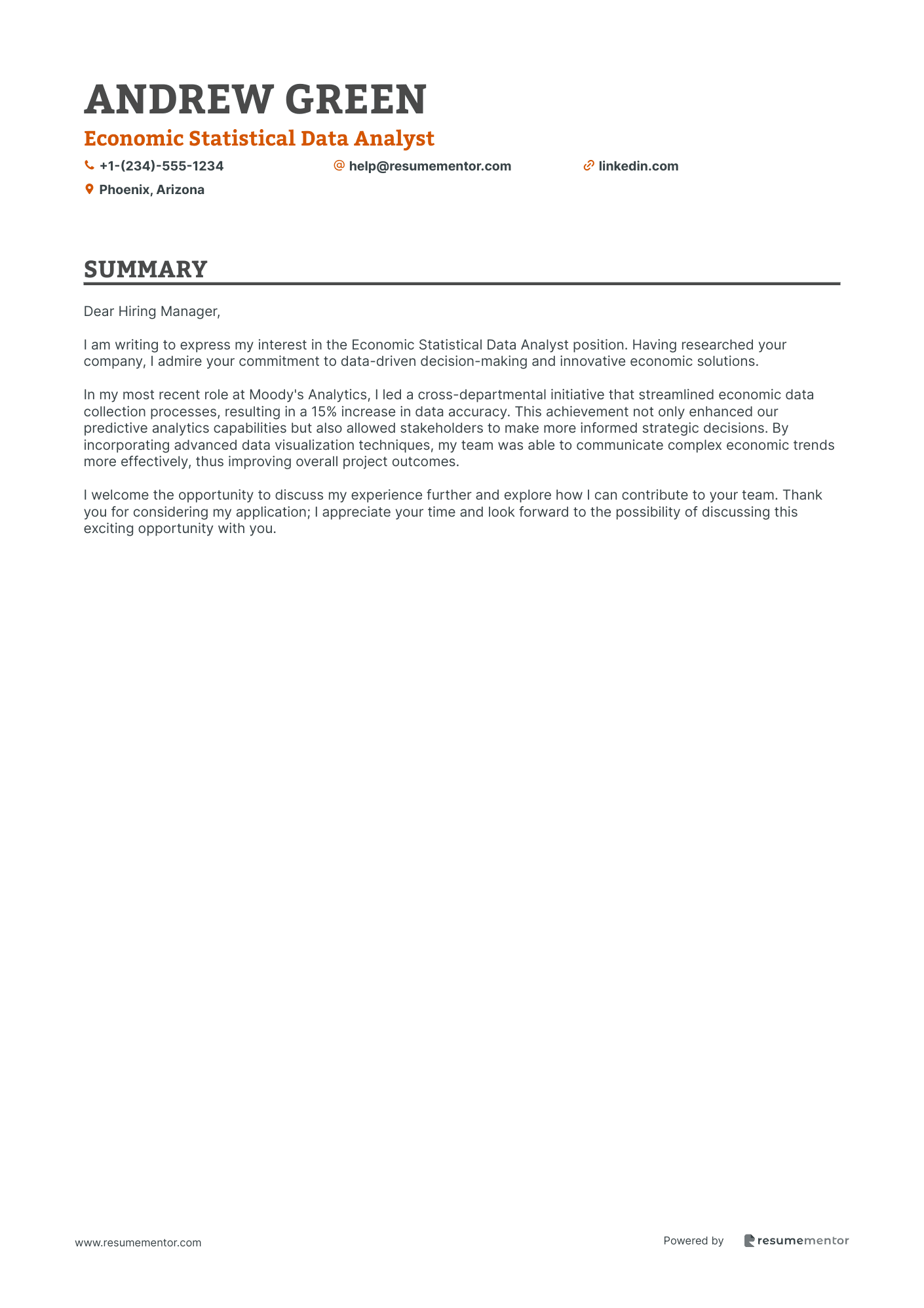
Economic Statistical Data Analyst
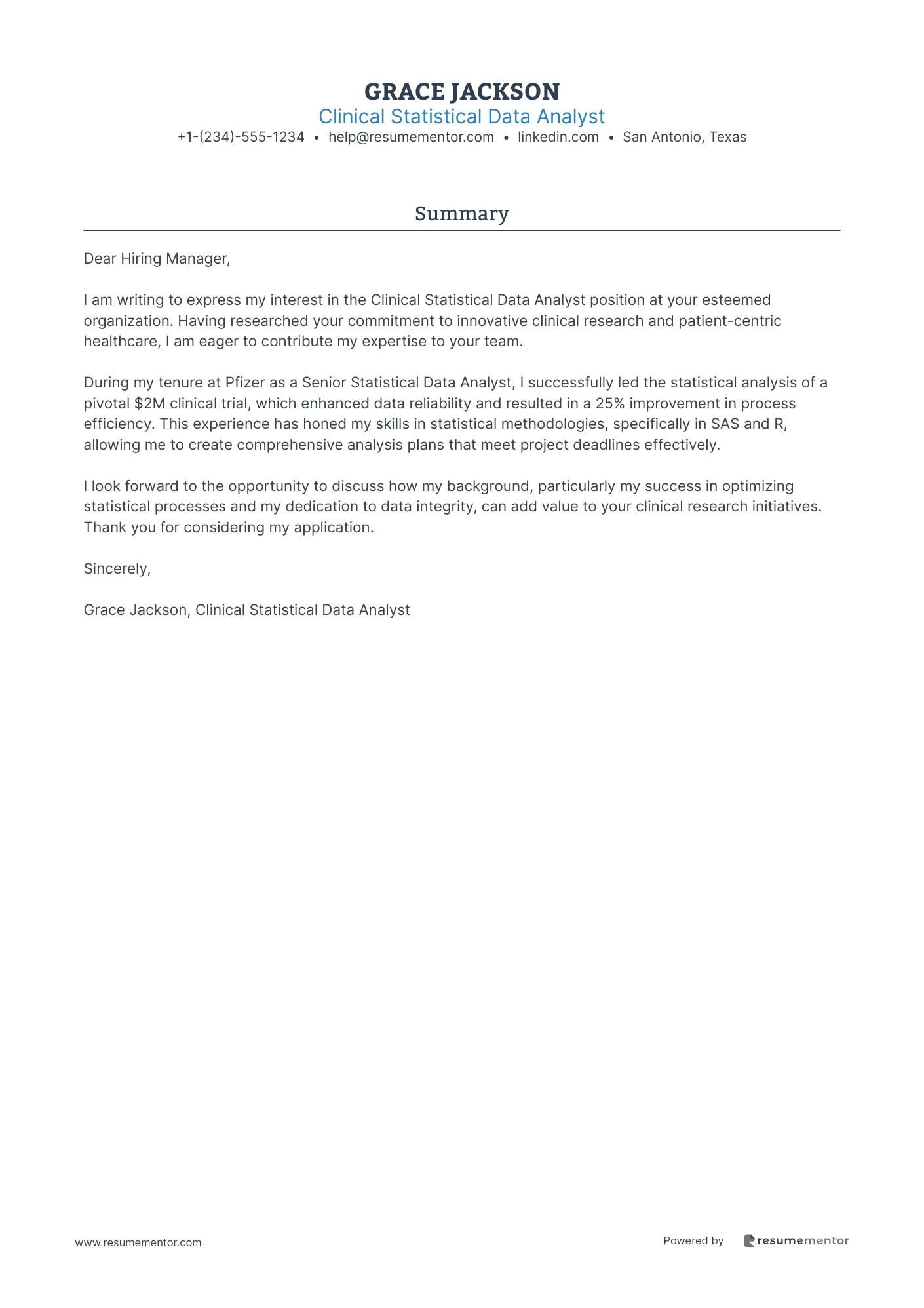
Clinical Statistical Data Analyst

Financial Statistical Data Analyst cover letter sample
Marketing Statistical Data Analyst cover letter sample
Healthcare Statistical Data Analyst cover letter sample
Environmental Statistical Data Analyst cover letter sample
Pharmaceutical Statistical Data Analyst cover letter sample
Supply Chain Statistical Data Analyst cover letter sample
Insurance Statistical Data Analyst cover letter sample
Demographic Statistical Data Analyst cover letter sample
Economic Statistical Data Analyst cover letter sample
Clinical Statistical Data Analyst cover letter sample
Related Articles

Continue Reading
Check more recommended readings to get the job of your dreams.
Resume
Resources
Tools
© 2026. All rights reserved.
Made with love by people who care.
